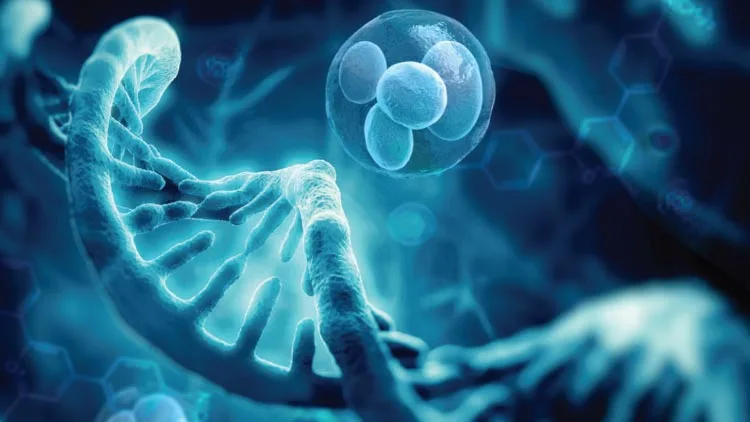In the fascinating world of regenerative medicine, stem cells are often discussed for their potential to help the body heal and renew itself. But when discussing stem cells it is also important to understand that there are various types of stem cells.
Perinatal, meaning around the time of birth, stem cells are particularly interesting because of where they come from and what they can do. Unlike embryonic stem cells or adult stem cells, the source of perinatal stem cells occur around the time of birth, from sources like:
Umbilical Cord Blood
Umbilical Tissue
The Placenta
Amniotic Fluid
These perinatal stem cells are not only ethically sourced by donation, compared to highly controversial embryonic stem cells, but also hold incredible promise for supporting the body’s natural ability to heal itself in its most active and youthful form
But what makes perinatal stem cells so special?
Stem cells have the potential to develop into many different types of cells, and perhaps more importantly,they can play a big role in helping the body recover from injuries or other issues for optimal healing and regeneration. Perinatal stem cells stand out in regenerative medicine because of their potency and ability to suppress inflammation, fight degeneration, help influence the more healthy functions of our own cells. Also, because they are fresh and unadulterated by years of exposure to proinflammatory stressors , they are more effective than adult stem cells.
Stem cells are are grouped based on their potential:
Totipotent Stem Cells
Totipotent stem cells are the ultimate perinatal stem cells that have the ability to form an entire organism from scratch. This means they can develop into every cell type needed for creating a fully functional organism. These are not presently available for clinical purposes.
Pluripotent Stem Cells
Pluripotent stem cells are versatile, but not quite as encompassing as totipotent cells. They can differentiate into nearly all types of cells in the body, but they cannot create a complete organism on their own. These are available only in certain research settings currently.
Multipotent Stem Cells
Multipotent stem cells are specialized to develop into a limited range of cell types within a particular tissue or organ system. These are the currently available cells donated from a perinatal source.
The use of perinatal stem cells in regenerative medicine, particularly those that are ethically sourced and processed in FDA-certified labs, represents a highly effective option that meets high standards for use in various stem cell approaches. Donations are made from screened mothers having a planned C-section birth, and the donation has no adverse impact on their new baby!
At ReCELLebrate, led under the care and expertise of Dr. Jeff Gross, we help you explore cutting-edge regenerative medicine options that leverage the unique benefits of perinatal stem cells. Our approach focuses on harnessing the regenerative potential of stem cells through advanced techniques, including stem-cell derived exosomes, to support the body’s natural healing and anti-inflammatory processes.
If you are interested in understanding how perinatal stem cells can help you, contact us today!

